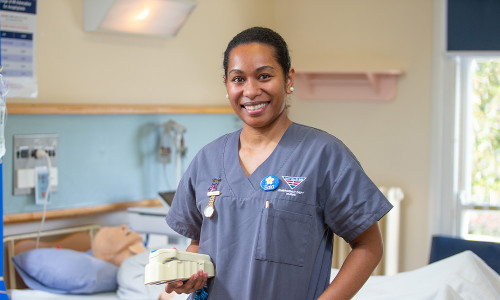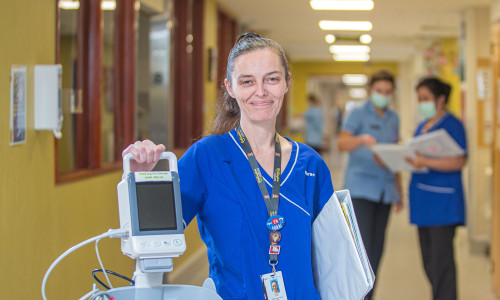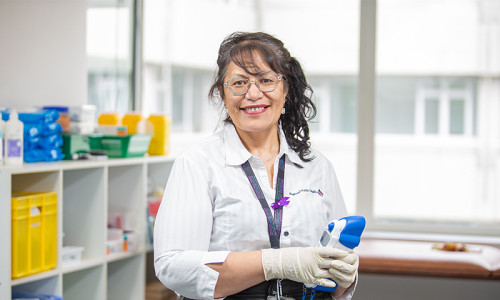Andrew Simpson - Registered ED Nurse, Wellington Regional Hospital
Graduate of Bachelor of Nursing
What does a day in your life as a Nurse in the Emergency Department look like?
It changes every day. Shifts are eight hours long, and you’ll be managing anywhere between 3 and 7 patients at one time. As a new grad, it can be intense, but I love it.
The shift starts with a handover from the ACNM (Associate Clinical Nurse Manager), where you’ll hear how their shift was and how many patients you’ll be attending to. After that, you’ll head out onto the floor where a nurse who’s worked the previous shift will explain the current state of your patients, what care they’ve had, and what needs to be done next. From there it’s about prioritising the care that needs to be attended to first and working your way down.
How do you stay level-headed?
I’ve always had a pretty calm personality, and I keep myself organised by writing everything down. I detail what I need to get done on a piece of paper, then slowly tick it off, starting with the highest acuity. Writing it down takes the mental pressure off and lets me focus on one task at a time.
It’s ingrained in us from early on to always ask for help when you need it – we were told that constantly by our tutors, and it’s the same now at the emergency department (ED). The team at Wellington Hospital are really supportive, there’s always someone around if you need a hand.
What do you enjoy most about your job?
I love coming to work every day not knowing what I’ll be doing. I’m the type of person who always has to be moving, ED is definitely the right place for me. The team there is also great, they’re always looking out for each other - it’s like a family.
What inspired you to pursue nursing?
I’ve always loved anatomy and human physiology, biology was one of my favourite subjects. I’m also a sporty person, so I’ve always been interested in the body and how to be healthy. I was thinking about studying sports science, but my mum told me I’d have more pathways with nursing. I spoke to a career advisor who also suggested nursing, so I decided to give it a crack.
What were your favourite parts of studying at Whitireia?
I really enjoyed my placements. I learnt a lot from them, especially acute brain injury (ABI). You see how someone's life can change in an instant, from something that’s not their fault at all. It could be the smallest thing, and they’ve lost their whole world. Some people couldn’t walk, some couldn’t talk.
Over half my time at Whitireia was spent in placements, it’s one of the reasons I chose to study there. I have dyslexia, and I’m much better at learning something in a practical environment than in a classroom. As well as ABI, I got to work in community mental health, EDOU (Emergency Department Observation Unit), the cardiothoracic ward, and ICU.
Did you learn anything invaluable while studying that has really helped you in your work so far?
One of my tutors, Phil, he told me to never get tunnel vision, to always be open to other possibilities. He emphasised the importance of never getting complacent or taking shortcuts, for example with checking vitals. They can be tedious, but they’re one of the most important things you can do. It helps you get a sense of their baseline, making it easier to spot anything irregular.
The tutors were all really supportive, they just wanted the best for you. As long as you showed you were willing to put the effort in, they were there to help you.
What’s next for you?
Right now, I'm happy with ED! Eventually, I would like to do some postgraduate study, and one day I want to take advantage of the opportunities overseas and do placements in Antarctica or Africa.
Study Nursing at Whitireia
Make a real difference in people's live with a career in nursing. Learn how to improve health outcomes for Māori, Pacific and the wider community. We've produced exceptional nursing graduates for over thirty years.




